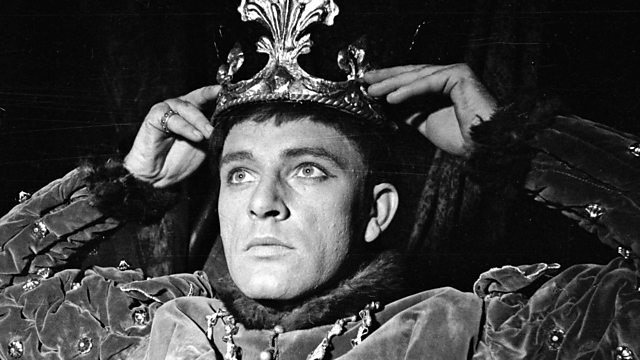University of Oxford: „Approaching Shakespeare“
Each lecture in this series focuses on a single play by Shakespeare, and employs a range of different approaches to try to understand a central critical question about it. Rather than providing overarching readings or interpretations, the series aims to show the variety of different ways we might understand Shakespeare, the kinds of evidence that might be used to strengthen our critical analysis, and, above all, the enjoyable and unavoidable fact that Shakespeare’s plays tend to generate our questions rather than answer them.
Slate: „Lend Me Your Ears“
So what political currents are likely influencing Shakespeare while he’s writing his plays? What can we learn about our present political moment from reading his works now? How have theater makers wrestled with staging the politics of Shakespeare’s plays? Those are the questions we’re investigating in Lend Me Your Ears, my new podcast miniseries for Slate.
Each month, we’ll investigate a different Shakespeare play: Julius Caesar, Richard II, King Lear, Measure for Measure, Othello, and Coriolanus. I’ll talk with experts—critics, historians, scholars, and theater makers—about Shakespeare’s England and the problems it faced. Together, we’ll dig into the plays to see how he’s responding to his current events, and the ways they map onto our own.
» zur ersten Folge der Reihe
BBC Radio 4 „In Our Time“: „Is Shakespeare History? The Plantagenets“
In the first of two programmes marking In Our Time’s 20th anniversary on 15th October, Melvyn Bragg and guests discuss Shakespeare’s versions of history, starting with the English Plantagenets. His eight plays from Richard II to Richard III were written out of order, in the Elizabethan era, and have had a significant impact on the way we see those histories today. In the second programme, Melvyn discusses the Roman plays.
The image is of Richard Burton (1925 – 1984) as Henry V in the Shakespeare play of the same name, from 1951.
With Emma Smith, Professor of Shakespeare Studies at Hertford College, University of Oxford, Gordon McMullan, Professor of English at King’s College London and Director of the London Shakespeare Centre, and Katherine Lewis, Senior Lecturer in Medieval History at the University of Huddersfield.
WDR Zeitzeichen: „Macbeth tötet den schottischen König Duncan (am 14.08.1040)“
„All hail, Macbeth!“ rufen die Schicksalsschwestern. Es sind seltsame Wesen – Frauen mit Bärten, vielleicht sogar Hexen! Sie verheißen dem Krieger eine goldene Zukunft: Macbeth soll König werden! Hierzu muss jedoch der regierende König Duncan sterben. Das düstere Shakespeare-Drama nimmt seinen Lauf.
Angestachelt von seiner ehrgeizigen Gattin bringt Macbeth König Duncan um, verstrickt sich in immer mehr Mordtaten, wird zum Tyrannen, verfällt dem Wahnsinn und findet — gemäß der Vorsehung der düsteren Hexen — sein blutiges Ende durch einen Mann, der nicht von einer Frau geboren wurde. Diesen Macbeth hat es in Wirklichkeit gegeben — und auch der Mord an König Duncan ist wohl historisch.
Heute kennen wir Shakespeares Quellen und wissen, dass er es mit ihnen nicht allzu genau nahm. Dichtung und Wahrheit sind halt zweierlei. Wer aber war der wahre Macbeth? Und was ist von Shakespeares Hexen zu halten, wenn sie singen: „Fair is foul, and foul is fair“ – “Schön ist abscheulich und abscheulich ist schön“? (WDR, Hildegard Schulte)




